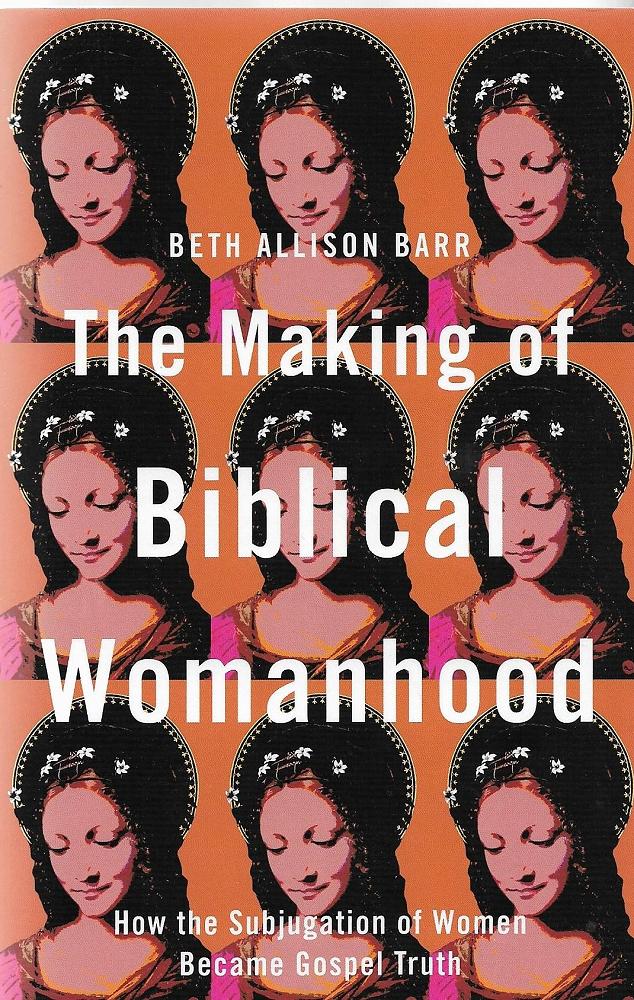
The Making of Biblical Womanhood: How the Subjugation of Women Became Gospel Truth.
Author: Beth Allison Barr
Publisher: Grand Rapids: Brazos Press, 2021. 245 pages.
Reviewer: John Meredith
The February issue of Touchstone included a review of the book, To be Fair by New Zealand District Court Judge, Rosemary Riddell. Many judges in New Zealand are women, including Chief Justice Helen Winkelmann. But there was a time when a woman presiding over a court of law was unthinkable.
That women’s roles were limited and predetermined was the message conveyed to Beth Allison Barr from her earliest years. She was taught that in the church and in society generally men lead and women follow; men wield authority and women obey. Why? Because the Bible teaches that this is the way God has designed creation. She was told repeatedly that marriage offered the highest fulfilment for a woman and that once married she would be expected to obey the ‘household codes’ in Ephesians 5:21-6:9, Colossians 3: 18-4:1 and 1 Peter 2:18-3:7. Other passages from 1 Corinthians 14 and 1 Timothy 2 were quoted to support the view that women must not teach or hold authority over men. A subordinate woman was a godly woman. This was stated to be gospel truth.
As a serious student Barr made her own study and came to believe that, rather than teaching that women must always be subservient to men, the so-called household codes were really challenging the gender hierarchy of the Roman Empire and urging Christians to uphold the worth and dignity of every human person.
Through her studies Barr was convinced that in 1 Corinthians 14:34-38 Paul was quoting the claims made by Corinthian male leaders that restricted a woman’s role and required women to be silent in church. Rather than agreeing Paul countered this with cutting sarcasm as he asked in effect, ‘Are you the only ones who understand God’s word?’ Barr saw Paul as affirming women as teachers and leaders by listing in Romans 16 the women who were his helpers. As a deacon Phoebe was invested with apostolic authority and Junias was described as prominent among the apostles. These were not subservient roles. Barr concluded that if women have been later kept out of leadership within the Christian community including preaching and priesthood, this has not been based on biblical authority.
Comment is made on opposition to gender neutral or inclusive language in modern Bible translations. Opponents see this as God’s word being subverted by liberal feminism but Barr is convinced that inclusive language is essential if the unlimited grace of God is to be made clear.
As an associate professor of history, Barr uses her scholarship to provide glimpses of how a masculine narrative of church history and a selective interpretation of scripture without consideration of its context has led to patriarchy being grafted on to the gospel. She illustrates this from her own painful experience of conservative evangelicalism. Even if this is not something we have experienced, the book is worth reading because Barr demonstrates clearly that rather than accepting traditional beliefs asking questions plays a key role in the search for religious truth.
